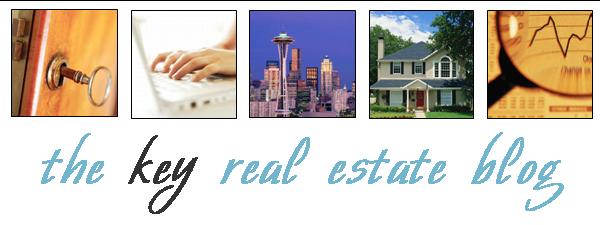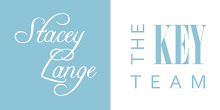
The U.S. housing market is rebounding faster than expected. The question is, can it last? Home resales in July posted the largest monthly increase in at least 10 years as first-time buyers rushed to take advantage of a tax credit that expires Nov. 30. Sales jumped 7.2 percent and beat expectations, the National Association of Realtors said Friday.
By ALAN ZIBEL
AP Real Estate Writer
WASHINGTON —
The U.S. housing market is rebounding faster than expected. The question is, can it last? Home resales in July posted the largest monthly increase in at least 10 years as first-time buyers rushed to take advantage of a tax credit that expires Nov. 30. Sales jumped 7.2 percent and beat expectations, the National Association of Realtors said Friday.
"We've got tens of thousands of homes perfect for the first-time homebuyer and we've taken advantage of that," said George Hackett, president of Coldwell Banker Real Estate in Pittsburgh.
Sales hit a seasonally adjusted annual rate of 5.24 million in July, from a pace of 4.89 million in June. It was the fourth-straight monthly increase and the strongest month since August 2007. Sales had been expected to rise to an annual pace of 5 million, according to economists surveyed by Thomson Reuters.
The risks to that healthy pace, however, are job cuts, mortgage rates and the looming end to the homebuyer tax credit. And the last one could be a doozy because first-time buyers are snapping up one out of every three homes.
First-time buyers get a credit of 10 percent of the purchase price of a home, up to $8,000. The credit phases out for singles earning more than $75,000 and couples earning more than $150,000. The real estate industry is lobbying to have the credit extended but its unclear if Congress will be swayed.
"I would not be at all surprised to see a dip at the end of the year once the tax credit expires," said Robert Dye, senior economist with PNC Financial Services Group.
The home sales report was another sign that the U.S. economy is on the verge of a long-awaited recovery after enduring a brutal recession and the worst financial crisis since the Great Depression.
Economic activity in both the U.S. and around the world appears to be leveling out and "the prospects for a return to growth in the near term appear good," Federal Reserve Chairman Ben Bernanke said Friday.
But fallout from the recession will linger for some time. Unemployment rose in July in 26 states and fell in 17, the Labor Department said Friday. That is driving up foreclosures, which are not expected to level off until sometime next year.
Sales of foreclosures and other distressed properties made up about a third of all transactions last month, down from nearly half earlier this year. In places like San Diego and Orlando, buyers are snapping up foreclosed properties at deep discounts, and inventories are low.
Those sales helped drag down the national median sales price by 15 percent to $178,400.
Stephen Stoyko hunted off-and-on for two years before he bought a four-bedroom, two-story foreclosure this week for $320,000. The home in Roswell, Ga., north of Atlanta, was initially priced at $335,000.
By ALAN ZIBEL
AP Real Estate Writer
WASHINGTON —
The U.S. housing market is rebounding faster than expected. The question is, can it last? Home resales in July posted the largest monthly increase in at least 10 years as first-time buyers rushed to take advantage of a tax credit that expires Nov. 30. Sales jumped 7.2 percent and beat expectations, the National Association of Realtors said Friday.
"We've got tens of thousands of homes perfect for the first-time homebuyer and we've taken advantage of that," said George Hackett, president of Coldwell Banker Real Estate in Pittsburgh.
Sales hit a seasonally adjusted annual rate of 5.24 million in July, from a pace of 4.89 million in June. It was the fourth-straight monthly increase and the strongest month since August 2007. Sales had been expected to rise to an annual pace of 5 million, according to economists surveyed by Thomson Reuters.
The risks to that healthy pace, however, are job cuts, mortgage rates and the looming end to the homebuyer tax credit. And the last one could be a doozy because first-time buyers are snapping up one out of every three homes.
First-time buyers get a credit of 10 percent of the purchase price of a home, up to $8,000. The credit phases out for singles earning more than $75,000 and couples earning more than $150,000. The real estate industry is lobbying to have the credit extended but its unclear if Congress will be swayed.
"I would not be at all surprised to see a dip at the end of the year once the tax credit expires," said Robert Dye, senior economist with PNC Financial Services Group.
The home sales report was another sign that the U.S. economy is on the verge of a long-awaited recovery after enduring a brutal recession and the worst financial crisis since the Great Depression.
Economic activity in both the U.S. and around the world appears to be leveling out and "the prospects for a return to growth in the near term appear good," Federal Reserve Chairman Ben Bernanke said Friday.
But fallout from the recession will linger for some time. Unemployment rose in July in 26 states and fell in 17, the Labor Department said Friday. That is driving up foreclosures, which are not expected to level off until sometime next year.
Sales of foreclosures and other distressed properties made up about a third of all transactions last month, down from nearly half earlier this year. In places like San Diego and Orlando, buyers are snapping up foreclosed properties at deep discounts, and inventories are low.
Those sales helped drag down the national median sales price by 15 percent to $178,400.
Stephen Stoyko hunted off-and-on for two years before he bought a four-bedroom, two-story foreclosure this week for $320,000. The home in Roswell, Ga., north of Atlanta, was initially priced at $335,000.
Stoyko expects to spend about $7,000 to replace missing kitchen appliances and light fixtures - a cost will be at least partially offset by the first-time homebuyer tax credit. "It's bigger than I needed, but the price was right," he said.
The inventory of unsold homes on the market rose to 4.1 million, from 3.8 million a month earlier as buyers who had held their homes off the market in the past decided to list them for sale. That's a 9.4-month supply at the current sales pace, unchanged from June.






No comments:
Post a Comment